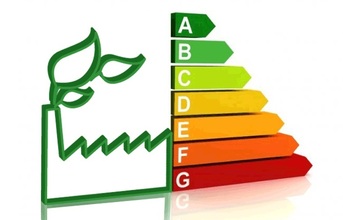
EESL also has its sights set on district cooling systems which can reduce energy demand for cooling by up to 50 percent. EESL has partnered with UN Environment's District Energy in Cities Initiative, which has already identified $600 million of projects across five cities in India.
At the event, Saurabh Kumar, Managing Director, EESL said, "Today is a momentous occasion for India. We are not only walking the talk by implementing the world's largest energy efficiency programs, but have also gained global recognition and participation in our commitment. Global partnerships such as these will accelerate our efforts in mitigating climate change and provide hope for a better future for the coming generations."
GEF is an international partnership of 183 countries, international institutions, civil society organizations and the private sector that addresses global environmental issues. The funding announcement was made at the launch of the GEF-6 fund which supports two projects - ‘Creating Markets for Energy Efficiency' and ‘District Energy in Cities'.
Speaking on the occasion, Naoko Ishii, Chairperson and CEO, GEF said, "Supporting innovative approaches for energy efficiency financing by domestic financial institutions has become a trademark added value for the GEF," said Naoko Ishii, CEO and Chair of the Global Environment Facility. "With the strong leadership of EESL and the Government of India, we believe fostering penetration of these clean energy technologies will help India leapfrog to a more sustainable future while helping reduce local and global emissions."
As part of the GEF grant, EESL's EERF aims to establish a sustainable funding mechanism for energy efficiency investments in the country. The EERF mechanism will be to support the ‘proof of concept' investments for the new technologies of super-efficient ceiling fans, tri-generation technologies & smart grid-applications, and ultimately scaling up energy efficiency financing and program development to help cover initial investment costs of identified energy efficiency programs in the country. This unique model will help in addressing the upfront risks of new technologies. Further, the accrued savings from these technologies can then be used to finance additional projects, which would allow capital to revolve as a sustainable funding mechanism.
According to the World Resources Institute (WRI), India is among the countries with relatively high per capita carbon emissions. India accounted for about 6.7 % of global carbon emissions in 2012. The energy sector accounts for 71% of the country's total greenhouse gas (GHG) emissions, mainly carbon dioxide (CO2). Therefore, there is a need for end-use efficiency for meeting the growing energy demands, without sacrificing growth.
The overall size of energy efficiency market in India is estimated to be $22.81 billion. EESL seeks to tap that market by implementing an innovative business model that is scalable, flexible, embraces different and emerging technologies and has incentives for all stakeholders.
END


























